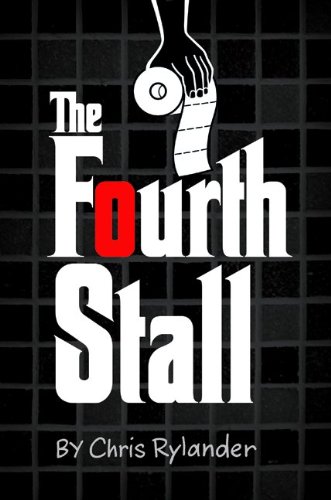
I’m sitting in the hot tub when I see the mosquito. Course, I don’t know it’s a mosquito, not yet. Just a Bug, capitalized, because unless you’re a farmer or one of those starving kids in Africa, a Bug, even one of the good ones, is always capitalized. You can’t ignore a Bug.
You really can’t ignore it when the damn thing insists on dancing in the air a foot above the water, right about where your feet are. I kick, thinking the hot water might scare it off, maybe even burn it if Bugs burn like that. And besides, I can’t do much else. My hands are busy holding the Kindle, because I can’t just soak in the tub, stare at the walls, close my eyes, relax. Blame the culture or whatever, but I’ve got to be Doing Something.
I hid it, too. Had to walk past Gwen on the way out here, her on the couch, me burying the Kindle in the folds of a bathroom towel because I’ve finally given up the paperback I’ve been slogging my way through, fifteen minutes a pop.
“You taking that in the hot tub?” she’d say if she saw, all accusation, all that’s-a-stupid-thing-to-do, all knowing-more-about-it-than-I-do, like how even if I don’t drop it, which I probably will, the moisture will worm its way into the thing’s innards and corrode the motherboard or whatever makes it work. “Seems like a big risk.” Gwen with that look.
I can see how it’ll happen, me with my tasty winter skin showing. I can see it clearly: The Bug making its move, probably coming in from a blind spot, humming in my ear like these goddam mosquitoes—because I’ve convinced myself that’s what it is—do. And me reacting: flaring up a hand to swat at it, the two of us, man versus mosquito, engaged in the ancient battle, only this time with a Kindle in my hand that will surely fall all the way to the bottom of the hot tub and be ruined forever, and my wife, even though she never saw it (She didn’t, did she?), will win the argument without saying a word, which is the worst way to lose one.
Where did it go, anyway?
Not flitting around over the water anymore. Maybe I scared it off with the splashing. I came out here to read…
But it could be on my shoulder, its light touch masked by the rivulets of water, slurping out an evening snack. Better check.
Nothing.
And just what is a mosquito doing out here anyway? It’s February, 23 degrees in this screened-in room, and cold for months now. Shouldn’t all the mosquitoes be dead? Don’t Bugs need warm weather? Don’t they only live for a few days in the first place? What’s it been feeding on? Not even the cat comes out in the winter.
No, it can’t be a mosquito. Something else then, some winter bug. They must exist.
Ah, there it is, on the bottom step that leads to the tub, not four feet away. It’s a big thing, stilts for legs, a little pale itself, and slow, like it used all its energy with its brief fly-by and now it’s gathering strength for the next lift off. Tiptoeing on those six spindles, moving closer, inch by inch.
Probably hasn’t fed in a long time. Probably smells my blood pumping under all this flabby skin and over-chlorinated water. And why not? If I were starving, wouldn’t I detect the aroma of a freshly grilled hamburger, even while standing on a mountain of trash?
The Bug shouldn’t be here. Improbable at the very least, impossible more likely. Which is why I can’t get back to reading. Definitely a mosquito. A survivor. Just two feet away and probably starving, has to be near death, while I’m sitting in a hot tub that I climbed into as soon as I took off my sweatshirt, on the off chance that the neighbors might be looking.
And now I can’t even read the Kindle I risked so much to bring out here.
Quite a mosquito, when you think about it. Remarkable, really. Defying the laws of nature and all that other stuff people say about things they don’t understand.
So I hang my arm over the side, drape it there, the beaded water on the fiberglass cold where it’s been exposed to the air. That same air this Bug has somehow survived.
Go ahead, fella, have a taste. Just this once. You deserve it. We’ll resume our war in the summer, the season for battles. We’ll continue when you make sense.
I wait, the Kindle held above the water in my other hand.
And wait some more, but it makes no move, so I lean closer, putting my hand down right next to it. But instead of diving in, instead of plunging that needle, instead of feeding, it takes off, winging up into the rafters.
It’s hard to read when your mind’s on other things, so I turn the Kindle off, and climb out of the tub. I stand there in my dripping shorts, bare skin gleaming and available, plenty to go around, giving the Bug, capitalized, one more chance that it doesn’t take.








